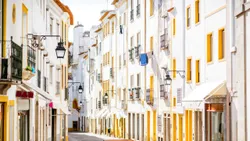

Portugal Évora History and Features Overview
Explore the rich history and unique features of Évora in Portugal. Discover landmarks, culture, and fascinating stories that define this historic city.
Évora: A Glimpse into Portugal's Historic Gem
Mycarro AI
May 2, 2025
Introduction to Évora
Nestled in the Alentejo region of Portugal, Évora is a captivating city steeped in history and tradition. With its rich cultural heritage, beautiful architecture, and vibrant local life, Évora is often considered a hidden jewel in Portugal’s vast array of historical locations. Designated a UNESCO World Heritage Site in 1986, the city reflects its ancient past through well-preserved monuments and a serene atmosphere that attracts visitors from all over the globe.
A Historical Overview
The history of Évora dates back to prehistoric times, with evidence of habitation as early as the Neolithic era. The city was later occupied by the Romans, who named it "Ebora Liberalitas Iulia" and established it as an important administrative center. The remnants of Roman architecture can still be seen today, including the impressive Temple of Diana, which stands as a testament to Évora's rich Roman past. The city continued to flourish under Moorish rule, adding layers to its intricate historical tapestry.
Architectural Wonders
Évora is renowned for its stunning architecture, which spans several centuries and cultures. The city’s medieval charm is highlighted by its narrow cobblestone streets lined with whitewashed houses. A centerpiece of the historical district is the majestic Évora Cathedral, a structure that combines Gothic and Romanesque elements and offers stunning views from its tower. Additionally, the Chapel of Bones, a chilling yet fascinating site, features walls adorned with human skulls and bones, serving as a reminder of the transient nature of life.
Cultural Vibrancy
The cultural scene in Évora is vibrant and dynamic, encapsulated by various festivals and events held throughout the year. The city comes alive during the Évora Medieval Festival, where streets are filled with medieval performances, markets, and a variety of culinary delights. Music is also integral to the cultural fabric of the city, with classical concerts and Fado music echoing through the historic squares. The lively atmosphere gives visitors a sense of connection to both the past and the present.
Culinary Delights
Embracing the regional gastronomy, Évora offers a delightful culinary experience characterized by hearty Alentejo dishes. Traditional meals often feature ingredients like pork, particularly the famed black pig, and bread soup known as "açorda." The wine produced in the Alentejo region is also exceptional, with rich reds and refreshing whites that complement the local cuisine beautifully. Visitors can explore various taverns and restaurants to indulge in these culinary delights while soaking in the local ambiance.
Nature and Surroundings
Beyond its historical and cultural attractions, Évora is surrounded by stunning natural landscapes. The Alentejo region is known for its rolling plains, cork oak forests, and extensive vineyards, making it perfect for outdoor activities such as hiking and cycling. The nearby megalithic complex of Almendres Cromlech, featuring ancient stone circles, offers an opportunity to connect with the ancient history of the area in a breathtaking natural setting.
Conclusion
Évora is not just a city steeped in history; it is a living testament to Portugal’s rich cultural heritage. From its stunning architecture to its vibrant local life, the city invites exploration and discovery. For visitors seeking to immerse themselves in history, art, and gastronomy, Évora is an irresistible destination that promises an unforgettable experience. Whether wandering through its narrow streets, savoring local delicacies, or marveling at its architectural wonders, Évora leaves a lasting impression on all who venture into its remarkable past.